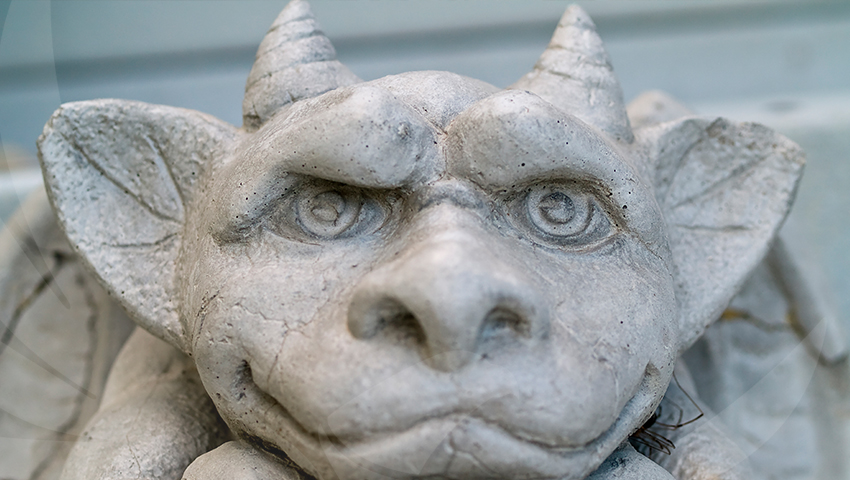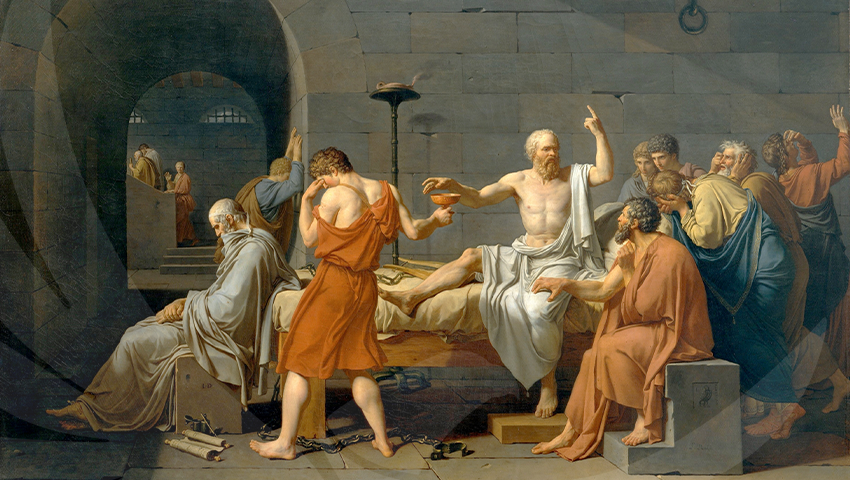What is Meditation, really? Why is it important? What does it mean to meditate properly? What results can we achieve with meditation? In this class we learn: 1. Goal of meditation 2. How true meditation is about having a passive mind 3. To be passive is the true nature of our mind 4. However, current times compel us to be active, going against our true nature and causing significant stress as a result 5. There is a way to acquire the ability to be peaceful – so that our mind and feelings do not react to any influences 6. The state of passive mind and feelings eventually leads to awakening of consciousness / active consciousness 7. Daily life can be a very good training ground to develop the ability to have passive mind and feelings and an active consciousness 8. This state is the key ingredient to experience the truth – about us and the world around us 9. We learn about acquiring and maintaining this state in daily life 10. Progressing in this manner, we can experience the illuminating void – the state of ecstasy or Samadhi 11. We see an example of what Samadhi is 12. We explore if there are any suitable times to meditate 13. We learn about a special ingredient to have a successful meditation 14. Finally we explore if there is any suitable position or duration for meditation An excerpt from this class: “If we want to apprehend the Real, if we want to experience the Truth, if we want to feel in our psyche that “Element” that is able to transform us radically, we need the calmness and silence of the mind. It is not a matter of “putting the mind in blank”, because this is truly absurd; it is a matter of attaining calmness and silence of the mind, which is different. It is not a question of fighting against the thoughts that come to the mind until the mind remains quiet. No, it is rather a question of contemplating those thoughts, understanding them, to contemplate those desires intelligently, to contemplate and to understand all memories that come to the mind.”
Learning to Meditate
-
The nature of evil
V.M. Kwen Khan Khu, , Messages from the V.M. Kwen Khan Khu, Metaphysics, Psychology, 0
Beloved readers: Making some disquisitions, I find it pleasant to tell you about: THE NATURE OF EVIL Talking about...
-
Why should we fight to death for our soul?
V.M. Kwen Khan Khu, , Messages from the V.M. Kwen Khan Khu, Metaphysics, Psychology, Topical Issues, 0
Much appreciated readers: I’m interested in sending you the following message about: WHY SHOULD WE FIGHT TO DEATH FOR...
-
What is the secret spring that moves ill-will?
V.M. Kwen Khan Khu, , Anthropology, Psychology, Topical Issues, 0
Dear friends: I am pleased to send you a few lines about the question: WHAT IS THE SECRET SPRING...
-
Why is it important to always tell the truth
V.M. Kwen Khan Khu, , Messages from the V.M. Kwen Khan Khu, Psychology, 0
Esteemed readers: I want to send you a few lines on a doctrinal subject that I consider relevant, important...
-
What secret reasons does the Being have to help us die psychologically?
V.M. Kwen Khan Khu, , Metaphysics, Psychology, 0
Dear friends: Allow me to send you some words that will give us comprehension about: WHAT SECRET REASONS DOES...
-
What does it mean to obey the will of the Father?
V.M. Kwen Khan Khu, , Messages from the V.M. Kwen Khan Khu, Metaphysics, Psychology, 0
Dearly beloved friends: It is with great pleasure that I resolve to send you a few lines on an...
-
The Path that gives Meaning to our Lives
V.M. Samael Aun Weor, , Anthropology, Psychology, 0
Do you know that there is a path that leads to the hidden knowledge, the superio...
-
The universe of Ethics
V.M. Kwen Khan Khu, , Messages from the V.M. Kwen Khan Khu, Metaphysics, Psychology, 0
Much-loved friends: I send you a few words so that we can enter into the description of what we...
¿Qué es realmente la meditación? ¿Por qué es importante? ¿Qué significa meditar realmente? ¿Qué resultados podemos alcanzar meditando? En esta clase aprendemos: 1. Objetivo de la meditación. 2. Cómo la verdadera meditación trata de alcanzar una mente pasiva. 3. Estar pasiva es la verdadera naturaleza de la mente. 4. Sin embargo, los tiempos actuales nos empujan a estar activos, yendo así contra nuestra verdadera naturaleza y causando un significativo estrés como resultado. 5. Hay una manera de adquirir la habilidad de estar en paz, de este modo nuestra mente y sentimientos no reaccionan ante ninguna influencia. 6. El estado de mente y sentimientos pasivos nos puede llevar al despertar de la Conciencia o a tener la Conciencia activa. 7. La vida diaria puede ser un excelente entrenamiento para desarrollar la capacidad de tener mente y sentimientos pasivos y una Conciencia activa. 8. Este estado es el ingrediente fundamental para experimentar la verdad sobre nosotros y el mundo que nos rodea. 9. Aprendemos cómo adquirir y mantener este estado en la vida diaria. 10. Actuando de este modo, podemos experimentar el Vacío Iluminador, el estado de éxtasis o Samadhi. 11. Vemos un ejemplo de qué es el Samadhi. 12. Estudiamos si hay momentos más adecuados para meditar. 13. Aprendemos un ingrediente especial para tener una meditación exitosa. 14. Finalmente, exploramos si hay alguna posición o duración adecuados para la meditación. Extracto de esta clase: “Si queremos aprehender lo Real, si queremos experimentar la Verdad, si queremos sentir en nuestra psiquis ese ‘elemento’ que puede transformarnos radicalmente, necesitamos la calma y el silencio de la mente. No es cuestión de ‘poner la mente en blanco’, porque eso es absurdo; es cuestón de alcanzar la calma y el silencio de la mente, lo cual es diferente. No es cuestión de luchar contra los pensamientos que vienen a la mente hasta que la mente se quede quieta, no. Es más bien una cuestión de contemplar esos pensamientos, comprenderlos, contemplar los deseos inteligentemente, contemplar y comprender cualquier recuerdo que viene a la mente”.
-
La odisea de vivir el Camino Secreto o Camino Hermético
V.M. Kwen Khan Khu, , Metafísica, Psicología, 0
Constantemente leemos frases relativas a eso que llamamos Camino Hermético o Camino Secreto, y en la mayoría de dichas...
-
El Camino que da Sentido a nuestras Vidas
V.M. Samael Aun Weor, , Antropología, Psicología, 0
¿Sabes que hay un camino que lleva al conocimiento oculto, al conocimiento…
-
Estados Equivocados
V.M. Samael Aun Weor, , Psicología, 0
Cuando uno trabaja seriamente sobre los estados equivocados, obviamente los sucesos desagradables de la vida ya no pueden herirle...
-
La autobservación nos salvará
V.M. Kwen Khan Khu, , Mensajes del V.M. Kwen Khan Khu, Psicología, 0
¿Por qué terminamos quemándonos en el camino? Porque luego de que los Yoes buenos nos hagan sentir que somos...
-
Las Profundidades de la Psicología Humana
V.M. Kwen Khan Khu, , Psicología, 0
Tiene que ser una persona que tenga anhelos de superarse a sí misma, porque esos anhelos la ayudarán a...
-
Concepciones del Gnosticismo Contemporáneo
V.M. Kwen Khan Khu, , Psicología, 0
Pero si se muere, entonces tenemos muchas puertas abiertas, y puertas que se nos van a abrir porque el...
-
Pensamientos negativos
V.M. Samael Aun Weor, , Psicología, 0
Pensar profundamente y con plena atención resulta extraño por esta época involutiva y decadente. Obviamente, este o aquel pensamiento negativo...
-
9 – Preguntas y respuestas (Congreso 2019)
V.M. Kwen Khan Khu, , Actualidad, Metafísica, Psicología, 0
Congreso Internacional de AGEAC celebrado en Atibaia, Brasil, en el mes de mayo ...










